What gemstones are mined in the semi-precious strip of the Urals? (PHOTOS)
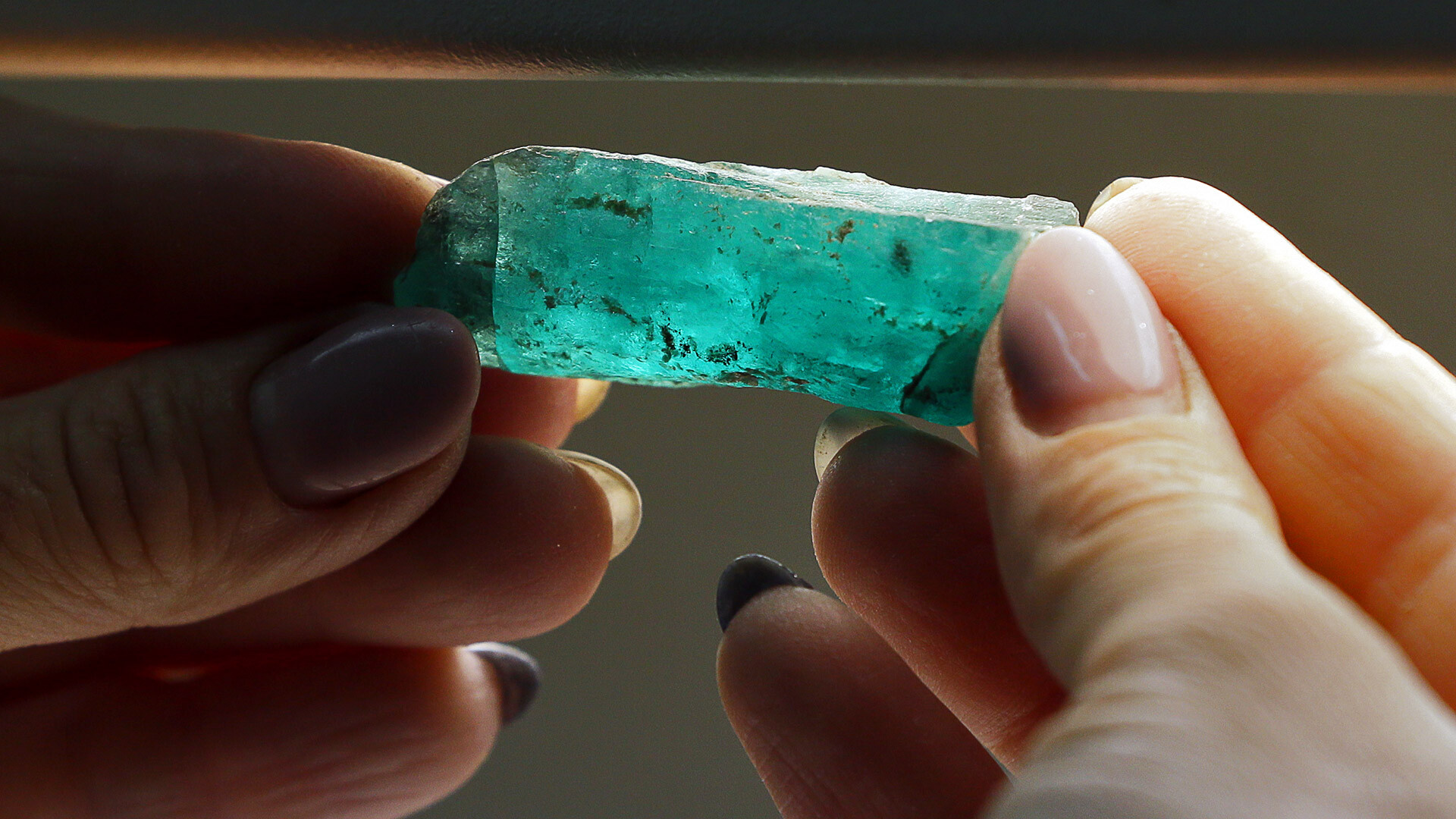
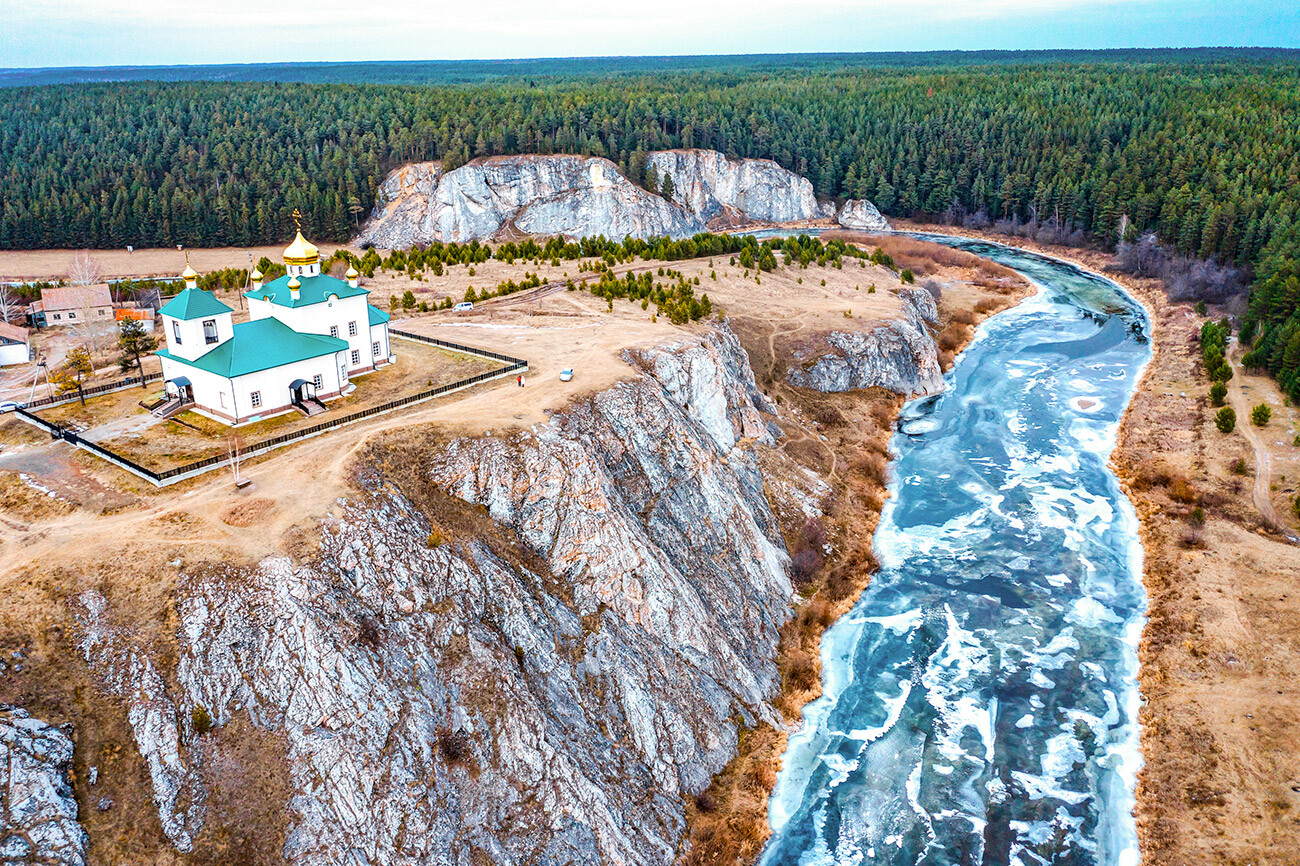 The Rezh river.
The Rezh river.
Nature has generously endowed the Urals: there is gold, silver and a whole lot of precious stones scattered there. But, nowhere else in the world is there anything similar to such an accumulation of deposits of semi-precious stones of such excellent quality as in the so-called 'Murzinka', that is, the Murzinsko-Aduysky belt.
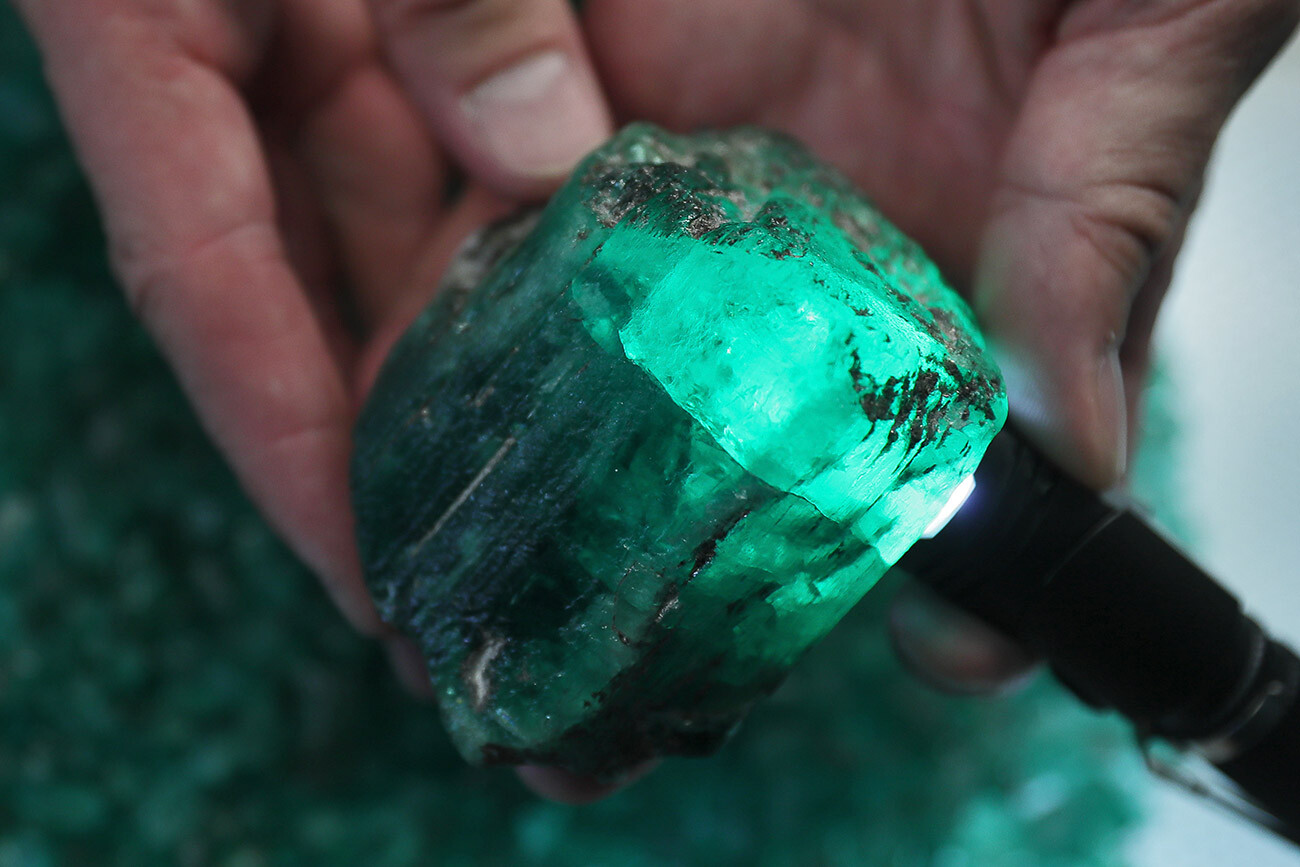 Specially valuable emerald found at the Mariinsky mine site.
Specially valuable emerald found at the Mariinsky mine site.
The gemstone belt stretches for 100 kilometers along the eastern slope of the Ural Mountains. It occupies the space between the Neiva, Rezh and Aduy rivers. The discoverers of the deposits are believed to be two industrialists - brothers Dmitry and Mikhail Tumashev, who, in 1668, spotted colored stones and copper ore near the Murzinsky stockade (about 120 kilometers from Yekaterinburg). They reported their findings in Moscow and received an award for their discovery. After that, in 1700, Peter I issued a decree 'On Mountain Freedom', which allowed anyone to search for gems. This is how the "gold rush", or rather the "gemstone rush", started there.
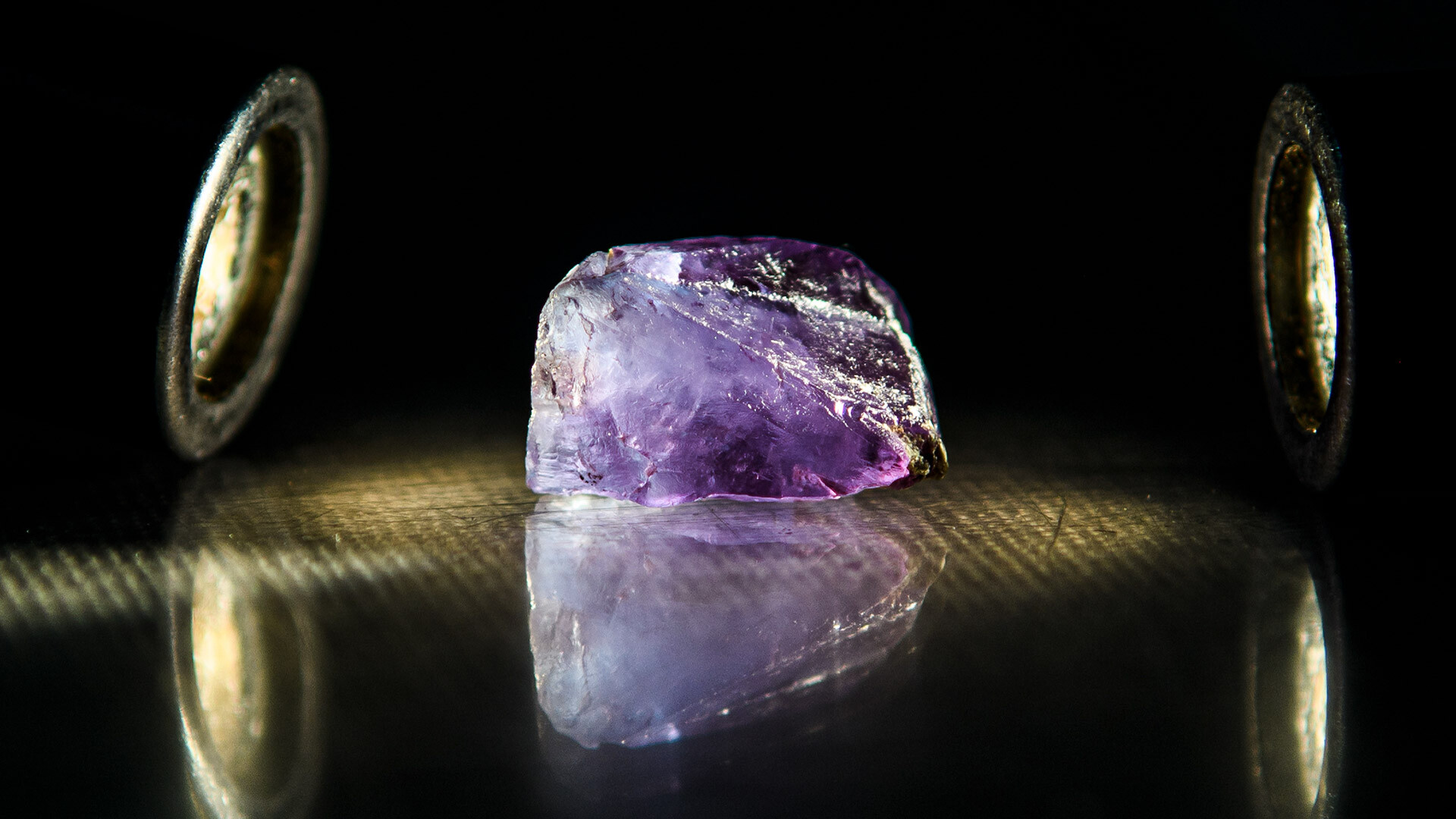 Alexandrite found at the Malyshev mine.
Alexandrite found at the Malyshev mine.
Local residents began to search and find amethysts, topazes, beryls and emeralds there. In 1900, a peasant accidentally dug out tourmalines from the ground near the village of Lipovoye, which became a real sensation. Minerologist Alexander Fersman wrote that no other gemstone in the world could compare with those tourmalines in beauty and the depth of shade.
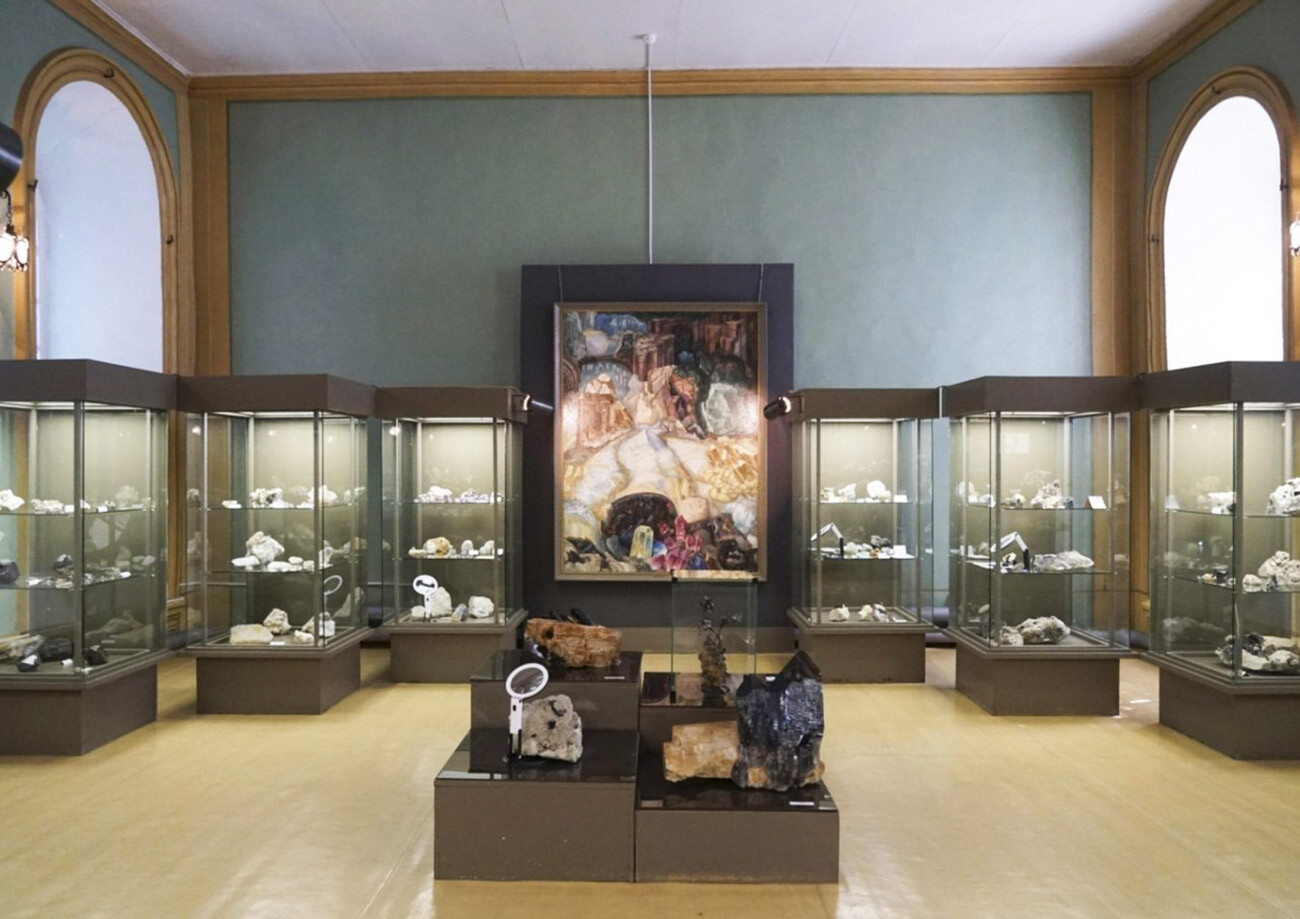 Fersman Mineralogical Museum.
Fersman Mineralogical Museum.
Samples of Ural stones can be seen in minerological museums in the village of Murzinka and the town of Rezha. Some exhibits are also kept in the museum of semi-precious stones in Moscow, such as the giant topaz 'Pobeda' ('Victory') weighing 43.6 kg.
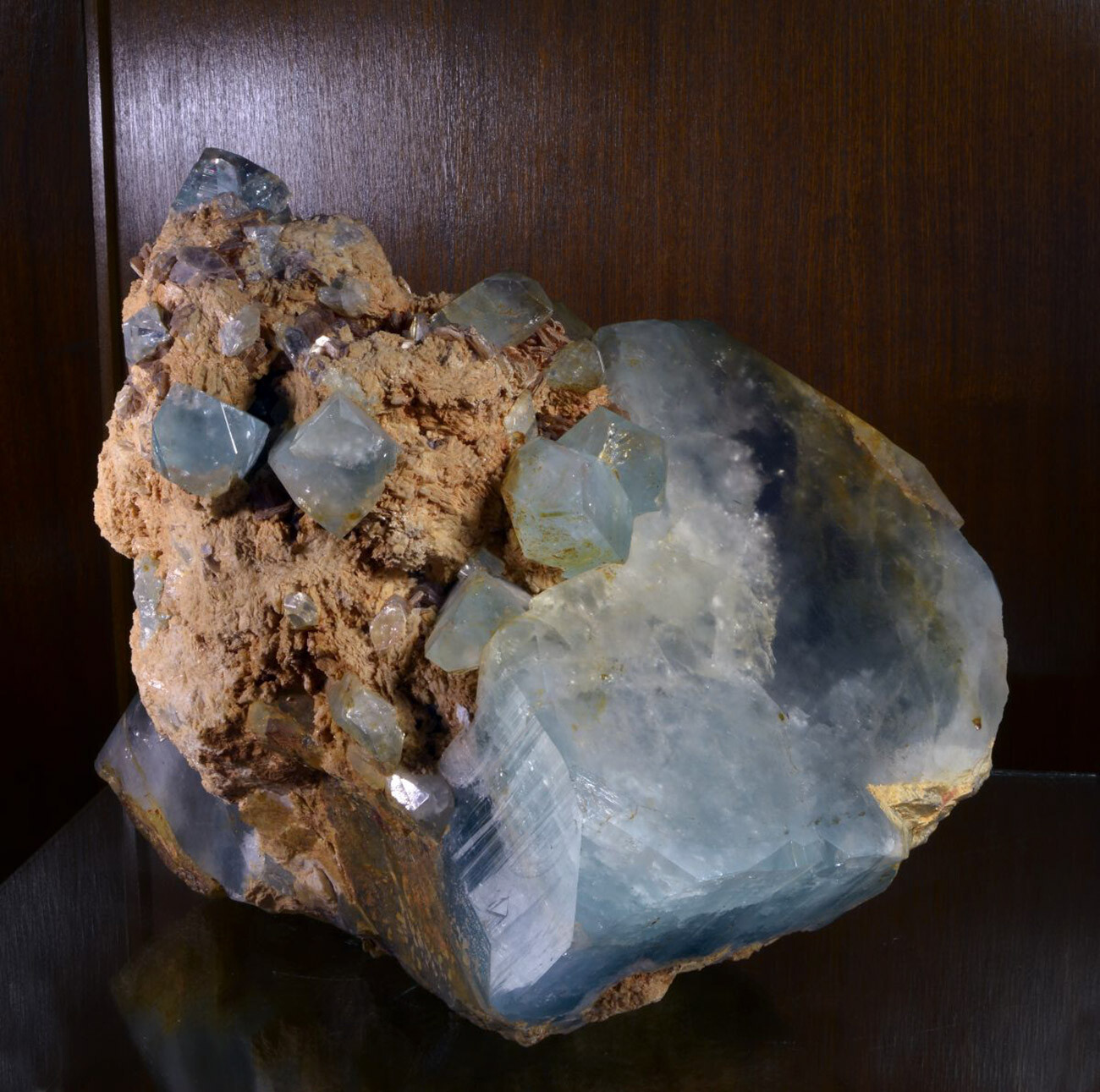 Pobeda topaz.
Pobeda topaz.
During the Soviet years, the mines were nationalized. Now, mainly emeralds are mined there (including at the famous Malyshev deposit), while the rest of the mines are viewed as exhausted or unprofitable.
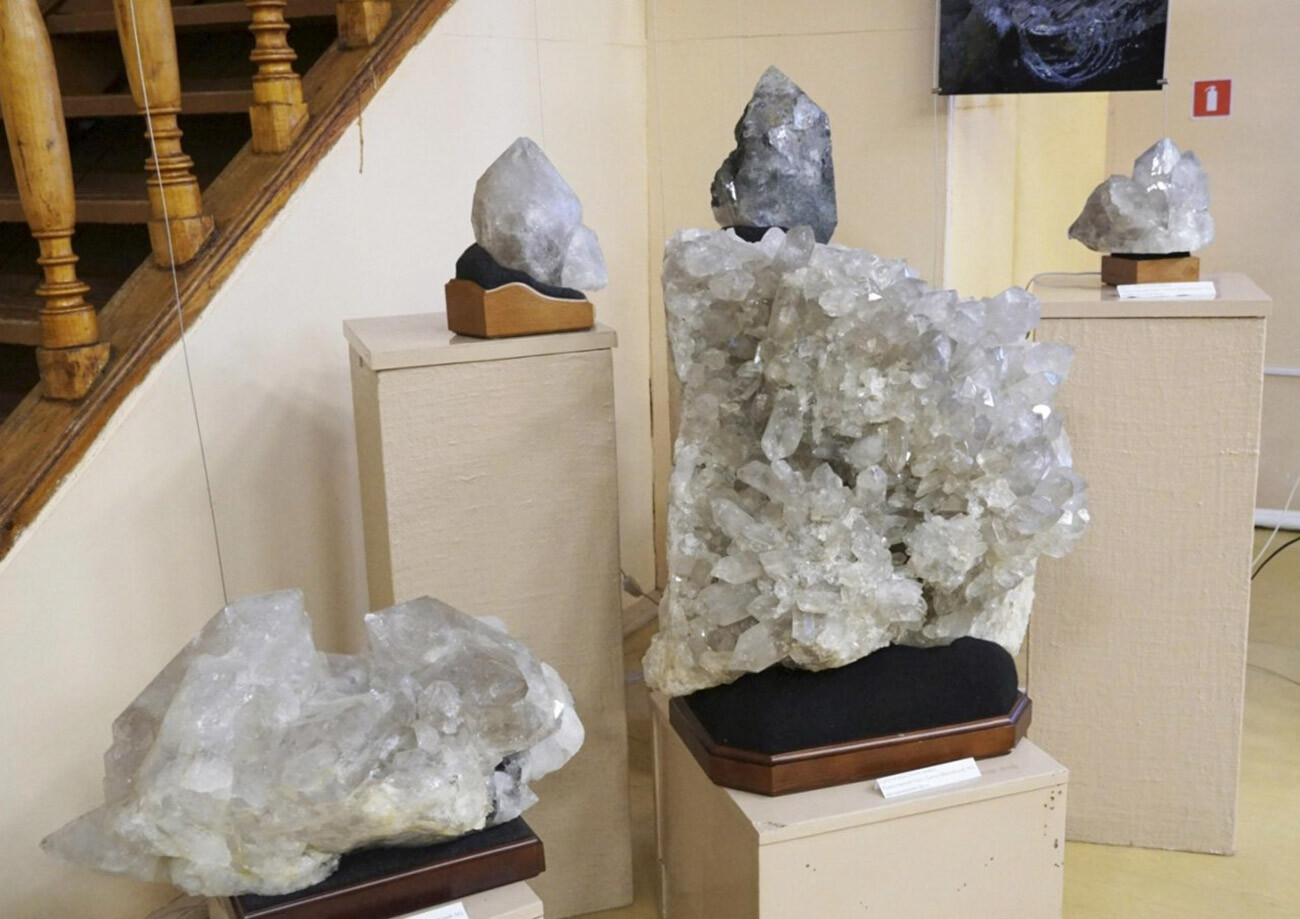 Urals gemstones in the Fersman Museum.
Urals gemstones in the Fersman Museum.
These days, tourists and mineral hunters alike can be seen on the route of the semi-precious belt. Who knows, what if they strike it lucky?
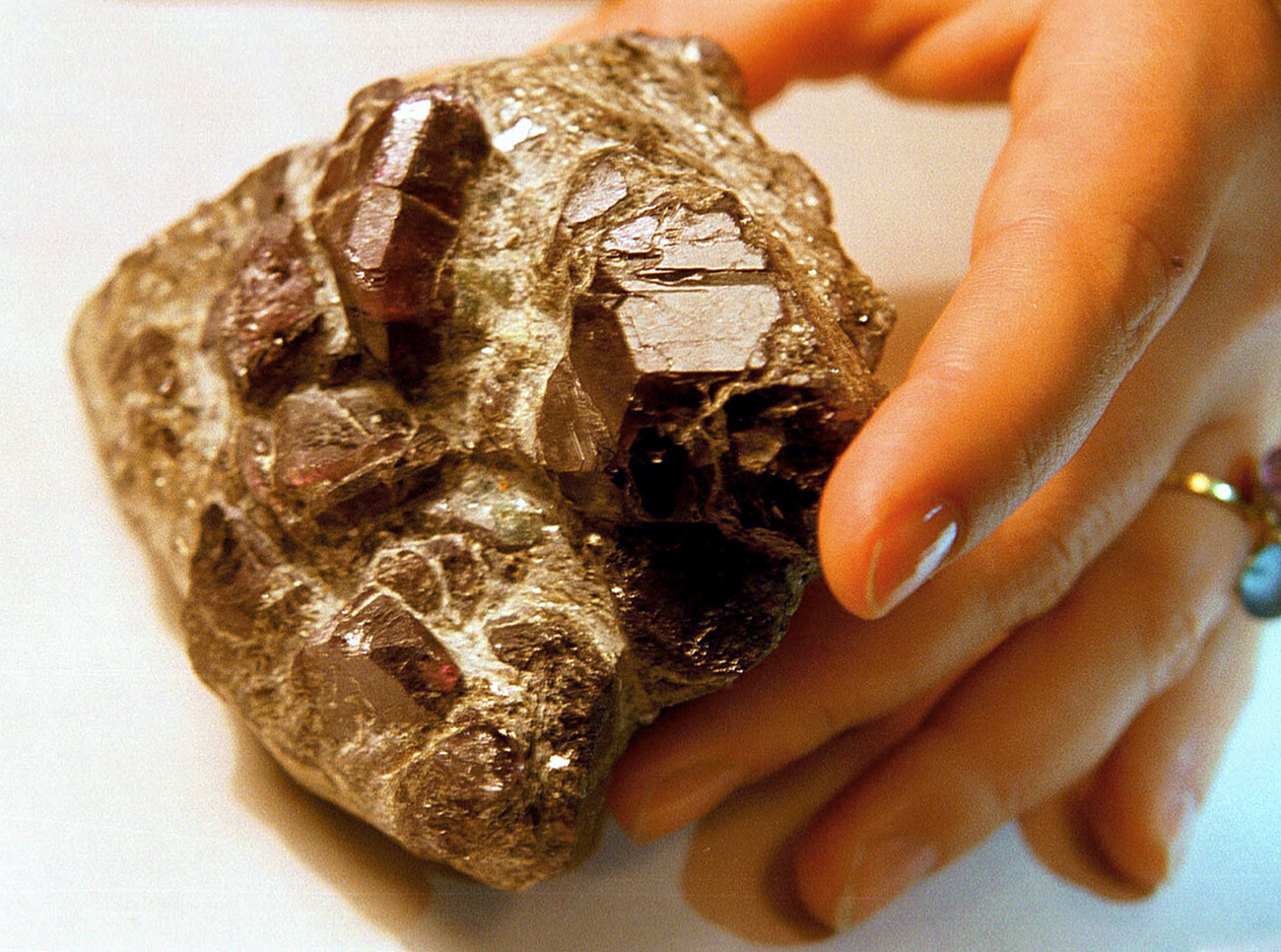 Urals alexandrite.
Urals alexandrite.

